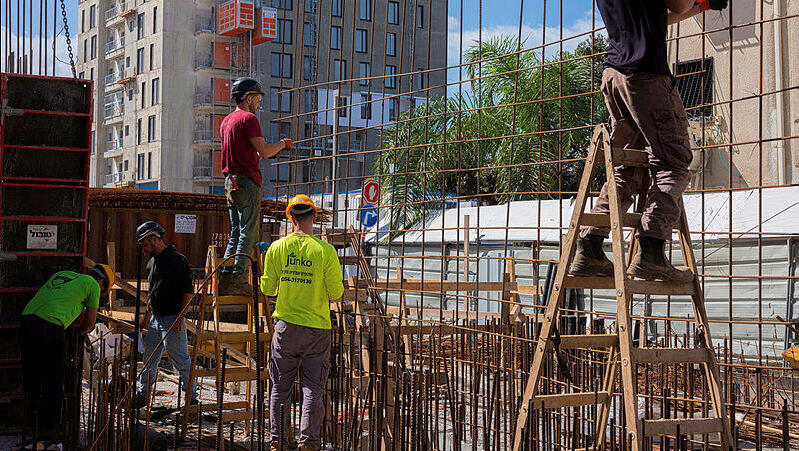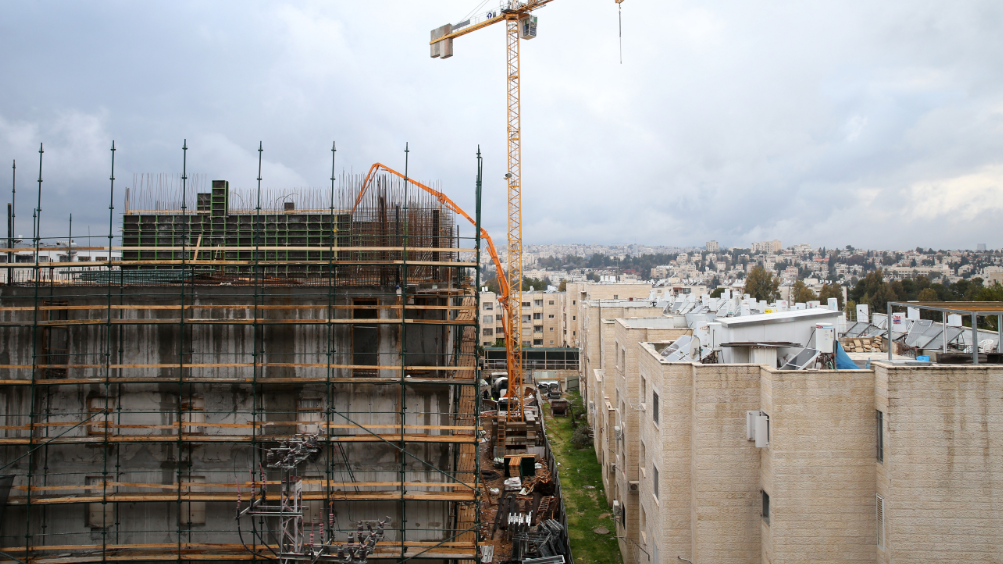Getting your Trinity Audio player ready...
Since the War broke out, Israel’s construction sector has suffered severely writes the IDSF Editorial Staff. One of the first steps the IDF took on October 8 was to ban access to Israel for West Bank Palestinians among them construction workers. At the same time, the Home Front Command issued guidelines that imposed restrictions on work at construction sites around the country.
That was an appropriate response but it dealt a severe blow to the Israeli construction sector and the first to suffer is the state itself. Housing prices now cause considerable strain on the national budget
In Israel’s construction sector, difficulties began long before the War. Over the years, prices rose significantly for many items important to the sector. A quarter of the national budget now comes from takes on real estate transactions, and without such a high level of transactions, there are no taxes. This is in the region of around 120 billion shekels a year, and in the coming year, a shortfall of 40 to 60 billion shekels is expected in the national budget from that accumulated damage alone.
Reliance on Palestinian laborers costs the sector dearly
The State of Israel has developed a reliance on Palestinian laborers which has been costly for the sector. There is a historic opportunity here to get rid of that reliance and revoke the permits of all Palestinian workers. Everyone in construction knows that Palestinians cause intentional damage for nationalistic reasons.
“They sabotage the plumbing, they clog drainpipes with tar, they stream water into the circuit breaker boxes — you name it," chair of the Israel Construction Center, Eran Rolls said. The accumulated damage adds up to billions per year. Rolls opposes allowing Palestinian laborers to return to work in Israel, but he also knows that without laborers, the contractors will be unable to meet their obligations.
Two solutions to end this reliance
Rolls suggests two solutions that could fill the ranks. The first, and faster, is to bring foreign workers, and the second is to train Israeli laborers. He says that neither solution is being pursued at the required speed or scale. Thousands of laborers are just waiting to be permitted to come to Israel.
Israel cannot readily accommodate enough foreign workers yet
Rolls notes that even if the state does admit the necessary quota, bringing all the laborers will still be a problem because there are no lodgings for them. We must set up four or five villages like that in Israel, and we certainly can, but like everything else in the country — it is not getting planned and it is not getting done.
The challenges of encouraging Israelis into the sector
The second solution to the labor shortage is, as mentioned, to train Israeli workers. Here, in contrast, the state is trying to take action and has even inaugurated a program for encouraging employment in the construction and agricultural sectors, offering monetary grants to Israelis who undertake such jobs. According to Rolls, the incentive may do some good; but before significant change can be generated, Israelis must be re-educated about the construction sector.
“Israelis don’t like to work in construction. Apparently, it’s not engrained in the Jewish DNA,” Rolls says. “I’m always saying that training Israeli workers is the most important thing for the construction sector, and I try to convince young people to enter the workforce but, to my regret, there’s not enough response,” he laments.
Glimmers of hope in the sector, in spite of its troubles
Eran Rolls does not try to hide the depth of the Israeli construction sector’s troubles, but he is also prepared to point out some glimmers of light. The first is a marked improvement in enforcing safety. Today every contracting company pays great attention to safety and makes sure to enforce all the procedures. “I’m happy to say that the improvement is significant”, he says.
 Amir AviviPhoto: Yariv Katz
Amir AviviPhoto: Yariv KatzSince the War of Iron Swords broke out, Israel’s construction sector has suffered severely. A quarter of the national budget now comes from takes on real-estate transactions. The State of Israel has also developed a reliance on Palestinian laborers which has been costly for the sector as they do intentional damage for nationalistic reasons that adds up to billions per year. Rolls suggests two solutions that could fill the ranks. The first, and faster, is to bring foreign workers, and the second is to train Israeli laborers and it is hoped that significant change can be generated.
- Brigadier General (res.) Amir Avivi is the founder and chairman of the Israel Defense And Security Forum (IDSF).



